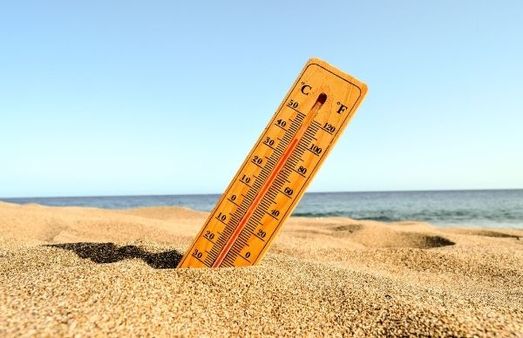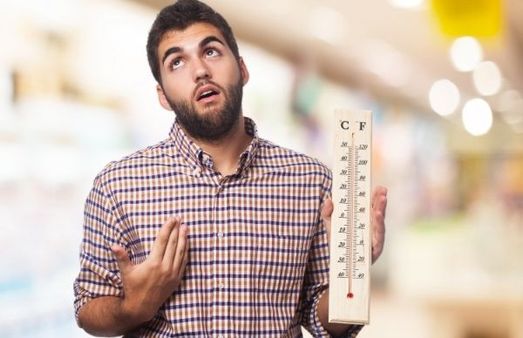Just In
- 55 min ago

- 4 hrs ago

- 7 hrs ago

- 8 hrs ago

Don't Miss
- Sports
 Pakistan vs New Zealand Live Streaming: PAK vs NZ 2nd T20 Live Telecast, Venues, Schedule
Pakistan vs New Zealand Live Streaming: PAK vs NZ 2nd T20 Live Telecast, Venues, Schedule - Finance
 Rs 17.50/Share Dividend: Tata Mid Cap To Consider Dividend On April 29, LIC Stake 9.88%
Rs 17.50/Share Dividend: Tata Mid Cap To Consider Dividend On April 29, LIC Stake 9.88% - Movies
 Animal Director Sandeep Reddy Vanga Gives Major Update About The Sequel, Here's What We Know
Animal Director Sandeep Reddy Vanga Gives Major Update About The Sequel, Here's What We Know - News
 IPL 2024: Delhi Capitals DC vs Sunrisers Hyderabad SRH Preview, Pitch Report, Head To Head Record
IPL 2024: Delhi Capitals DC vs Sunrisers Hyderabad SRH Preview, Pitch Report, Head To Head Record - Automobiles
 Ola Electric Hits New Milestone – 500th Service Centre Opened In Kochi
Ola Electric Hits New Milestone – 500th Service Centre Opened In Kochi - Education
 Railway RPF Recruitment 2024; Apply Online for 4660 Post Vacancies @rpf.indianrailways.gov.in
Railway RPF Recruitment 2024; Apply Online for 4660 Post Vacancies @rpf.indianrailways.gov.in - Technology
 Best Noise-Cancelling Earbuds Under Rs 5,000: CMF Buds Pro, Redmi Buds 5, Realme Buds Air 5, and More
Best Noise-Cancelling Earbuds Under Rs 5,000: CMF Buds Pro, Redmi Buds 5, Realme Buds Air 5, and More - Travel
 Journey From Delhi To Ooty: Top Transport Options And Attractions
Journey From Delhi To Ooty: Top Transport Options And Attractions
13 Expert Tips For Beating The Heat Wave (Without An AC); How To Make DIY AC
India had its hottest March in 122 years in 2022! March 2022 was the hottest month since records began in 1901 because of an unseasonal heatwave in the north and central India, which as per data, is continuing in April [1].
As the summer season continues, with a reported temperature higher than last year, cases of heat stroke are being reported around the country. During normal conditions, the body's internal thermostat produces perspiration that evaporates and cools the body when it becomes hot. However, in high humidity and extreme heat, evaporation is slowed, and the body has to exert more energy to maintain a regular body temperature.
The elderly, young children, the sick, and the overweight are more likely to suffer from extreme heat. In addition, because men sweat more than women, they are more susceptible to heat illness since they become dehydrated more quickly, points out Dr Arya Krishna (NHS, UK) [2].

Those living in urban areas may be more at risk of heatwaves than those living in rural areas. Especially in urban areas, stagnant atmospheric conditions can trap pollutants, thus adding unhealthy air to excessively hot temperatures and causing health problems. Furthermore, asphalt and concrete store heat longer and gradually release it at night, causing significantly higher temperatures at night in urban areas, also known as the 'urban heat island effect' [3].
Continue reading Expert Tips For Surviving A Heat Wave.

Tips For Beating The Heat Wave
A heatwave can strike areas of the country where the climate is typically cooler during the summer. It becomes more challenging to survive in extreme temperatures when many houses do not have air conditioning [4]. However, you can stay cool during a heatwave even if your home is not air-conditioned by considering the following steps:
Tip 1: Avoid eating large, protein-rich meals that can increase your metabolism and make you feel warm.
Tip 2: Avoid alcohol and caffeine, as both can cause dehydration and act as diuretics.
Tip 3: Keep hydrated throughout the day, drinking more water than you usually do when it's hot. Drinking electrolyte replacement drinks or eating a small amount of food with your water is necessary if you sweat excessively. In addition, it is critical to drink enough fluids before you feel thirsty to don't dehydrate. Thirst is the first sign of dehydration; you should drink enough fluids before feeling thirsty.
Tip 4: Do not engage in strenuous activity, such as exercising-exercise during the coolest part of the day, usually between 4:00 a.m. to 7:00 a.m. Many heat-related illnesses occur when people exercise or work during the hottest day.
Tip 5: Dress in loose-fitting, lightweight, light-coloured clothing that covers as much skin as possible. Light-coloured clothing helps keep your body temperature at a normal level. In addition, it keeps your skin protected from sunburn and overheating from sunlight.
Tip 6: Get rid of extra sources of heat. It is possible for incandescent light bulbs to generate unnecessary heat, as can computers and appliances that are left running. Whenever possible, eat foods that don't require you to use the oven or stove.
Tip 7: During periods of high usage, vacuum the air conditioner's filters weekly. Filters can become dirty or clogged, making them less efficient. Keeping them clean will allow your air conditioner to provide more cool air.
Tip 8: For a homemade air conditioning system, place a box fan (exhaust fan) in front of an open cooler or an ice pan filled with water.
Tip 9: Promote air circulation throughout your home by using box fans and ceiling fans. Utilizing box fans to push hot air out of the house can serve as an exhaust system for the house and draw cooler evening air in.
Tip 10: Open all windows in the evenings to encourage air circulation. Close all doors and windows when the sun rises, and make sure to close curtains and blinds, to keep the indoors as cool as possible. When the outside temperature drops below the inside temperature (usually in the evenings or at night), open the windows again and turn on the fans.
Tip 11: Utilize the cooling power of water. Take cool showers or baths, soak your feet in buckets or basins of water, wear wet towels or bandannas on your shoulders or head, and use a spray bottle filled with cold water to refresh yourself throughout the day.
Tip 12: Go downstairs. The upper stories are generally warmer than the ground floor in a home since hot air rises.
Tip 13: If the heat becomes unbearable, visit public buildings with air conditioning during the hottest parts of the day, such as libraries, shopping malls, and movie theatres.
Recognize the symptoms of heat-related illnesses and true heat emergencies such as heat cramps, heat rash, heat exhaustion, and heatstroke [5][6].

How To Make DIY Air Conditioner
1. Homemade air conditioner with a fan, ice and salt
Step 1: Add three tablespoons of salt to each of your three plastic water bottles. Disposable plastic bottles will make setup and clean-up easier. Recap the bottles and shake them vigorously to mix the salt thoroughly.
Step 2: Put all the bottles in the freezer. When the water in the bottles has turned to ice, remove them from the freezer and set them aside.
Step 3: Place the bottles 15 cm in front of your fan. You can use any fan, but a table or box fan will be most effective. You can cool your bottles by putting them in front of the fan and letting the air pass around them. Then, turn on the fan for a makeshift air conditioner while the bottles are frozen.
Step 4: Reuse your bottles by putting them back in the freezer.

On A Final Note…
With the temperature only going up, climate experts in the country are raising caution and asserting that "India has to take its Heat Action Plan more seriously." And according to India Meteorological Department (IMD), the maximum temperature is likely to rise over the next few days.
Experts advise everyone, especially the elderly, children, people with a high body temperature, and underlying conditions to take extra caution during extreme weather.

-
 fashionSummer Fashion: Your Bollywood Style White Outfits Guide To Keep It Cool And Chic
fashionSummer Fashion: Your Bollywood Style White Outfits Guide To Keep It Cool And Chic -
 fashionSonam Kapoor Stuns In A Huisang Zhang Skirt Set, A Skirt-Top Style Guide From The OG Fashionista!
fashionSonam Kapoor Stuns In A Huisang Zhang Skirt Set, A Skirt-Top Style Guide From The OG Fashionista! -
 beautyDeepika Padukone's 6 Refreshing Skincare Tips to Beat the Summer Heat
beautyDeepika Padukone's 6 Refreshing Skincare Tips to Beat the Summer Heat -
 fashionSummer Fashion: 6 Tips For Embracing Layering Styles To Keep It Cool And Stylish
fashionSummer Fashion: 6 Tips For Embracing Layering Styles To Keep It Cool And Stylish -
 healthExclusive: Expert Shares Impact of Heat Waves on Infectious Disease Transmission
healthExclusive: Expert Shares Impact of Heat Waves on Infectious Disease Transmission -
 relationship7 Reasons Why Relationships That Begin in Summer Shine Brightest And Can Turn Into Everlasting Love
relationship7 Reasons Why Relationships That Begin in Summer Shine Brightest And Can Turn Into Everlasting Love -
 fashion6 Refreshingly Chic Short Hairdos For Summer, Bollywood Inspired!
fashion6 Refreshingly Chic Short Hairdos For Summer, Bollywood Inspired! -
 fashionSonam Kapoor's Floral Dress Avatar Is Chic And Summer Friendly, Check Her Summer Style Statements!
fashionSonam Kapoor's Floral Dress Avatar Is Chic And Summer Friendly, Check Her Summer Style Statements! -
 beautyAlia Bhatt Approved Tips For Achieving Glass Skin In Summer, Follow Them To Get Radiance!
beautyAlia Bhatt Approved Tips For Achieving Glass Skin In Summer, Follow Them To Get Radiance! -
 beautyUltimate Summer Beauty Tips: 7 Makeup Hacks For A Fresh And Radiant Look For Office
beautyUltimate Summer Beauty Tips: 7 Makeup Hacks For A Fresh And Radiant Look For Office -
 beautySummer Haircare Guide: 7 Essential Tips For Healthy And Sun-Kissed Locks
beautySummer Haircare Guide: 7 Essential Tips For Healthy And Sun-Kissed Locks -
 fashionSummer Fashion: 6 Breezy Dresses Inspired By Janhvi Kapoor's Closet That Are Comfortable And Chic
fashionSummer Fashion: 6 Breezy Dresses Inspired By Janhvi Kapoor's Closet That Are Comfortable And Chic


 Click it and Unblock the Notifications
Click it and Unblock the Notifications



